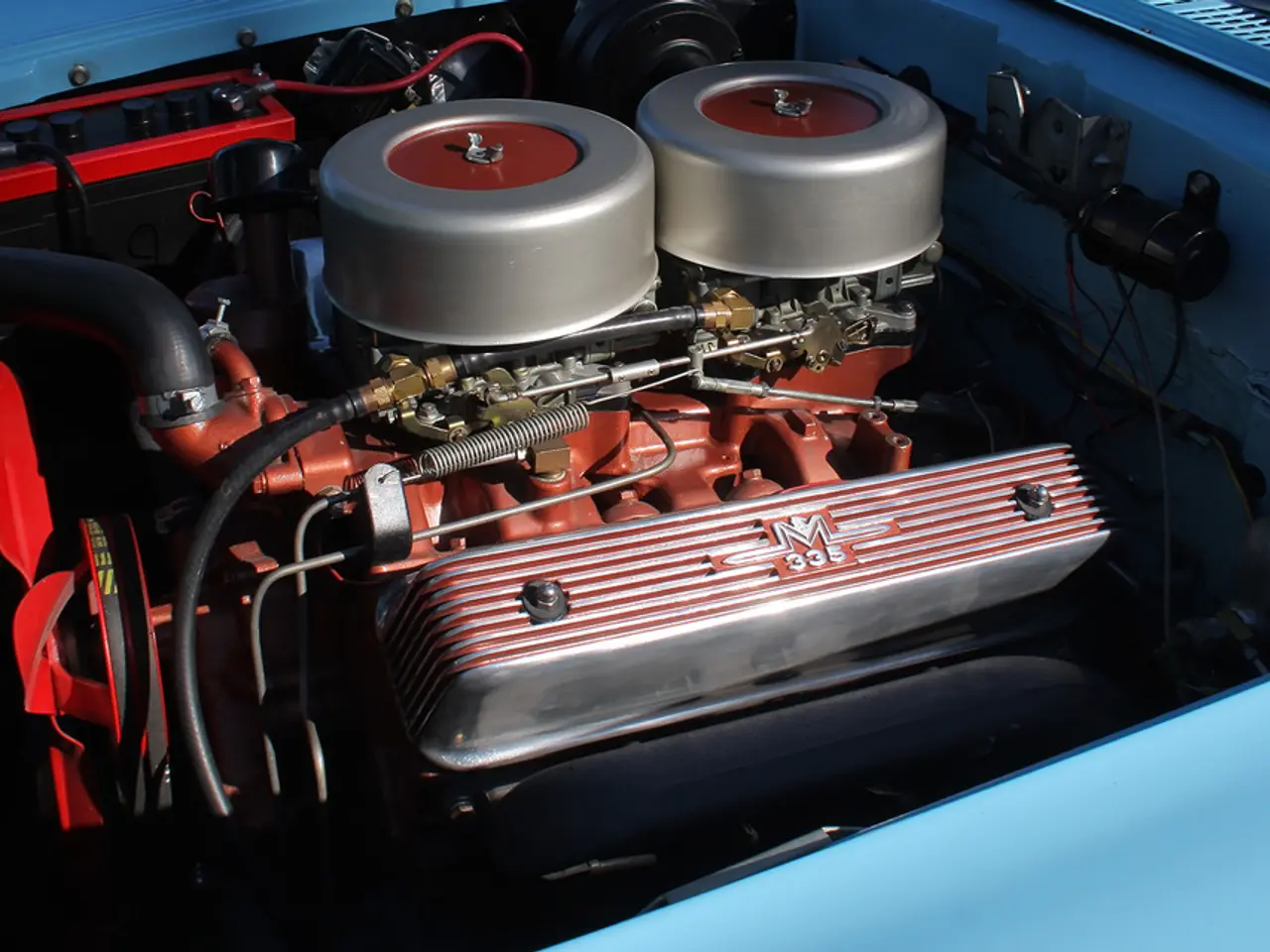Automaker Stellantis discards hydrogen fuel cell technology and shelves plans for new vehicle development
In a significant shift for the automotive industry, Stellantis, a leading global automaker, has announced it will not be launching a range of hydrogen-powered vehicles for light commercial use this year. This decision comes amidst growing financial challenges in the hydrogen segment and the ongoing struggle to meet CO2 emission targets in Europe.
The decision, which will see the cancellation of Stellantis' hydrogen fuel cell development program, is primarily due to the limited hydrogen refuelling infrastructure, high capital requirements, and the need for stronger purchase incentives for customers. This move follows earlier warnings by Stellantis about the threat of plant closures due to government pressure on car firms to meet Zero Emission Vehicle (ZEV) targets that incrementally rise each year.
Stellantis' portfolio of car brands, which includes Abarth, Alfa Romeo, Chrysler, Citroën, Dodge, DS Automobiles, FIAT, Jeep, Lancia, Maserati, Opel, Peugeot, Ram, Vauxhall, Free2move, and Leasys, has been impacted by the decision. However, it is important to note that the decision will not affect staffing at Stellantis production sites. All research and development activities focused on hydrogen technology will be redirected to other projects.
The hydrogen market remains a niche segment, with no prospects of mid-term economic sustainability, according to Stellantis' COO for enlarged Europe, Jean-Philippe Imparato. This sentiment is shared by other industry stakeholders, with recent job cuts at Audi's EV factory in Belgium and potential layoffs at Skoda as part of drastic cuts to keep up with an expensive electric car rollout.
Despite these challenges, the hydrogen fuel cell market is expected to continue growing, driven by government support for clean energy and increasing demand for electric vehicles. The global fuel cell market is projected to grow at a CAGR of 20.5% from 2025 to 2032. Initiatives like the International Hydrogen Trade Forum aim to facilitate international trade and cooperation, which could further stimulate the market.
In the automotive sector, companies like Toyota and Hyundai are continuing to invest in hydrogen Fuel Cell Electric Vehicles (FCEVs), particularly for fleet operations where hydrogen's advantages are more pronounced. The market's future prospects also depend on technological advancements, such as improving fuel cell efficiency and reducing costs, which could make FCEVs more competitive against battery electric vehicles.
Stellantis' decision to scrap hydrogen technology is a setback for the market, indicating that significant challenges remain. However, the decision does not necessarily signal a complete abandonment of hydrogen technology across all automotive applications. Other companies continue to see potential in hydrogen, especially for heavy-duty and fleet operations. The future of hydrogen FCEVs will depend on overcoming existing market challenges through technological innovation, infrastructure development, and regulatory support. Despite setbacks, the overall momentum in the hydrogen fuel cell market suggests continued growth and potential long-term viability, especially in niches where hydrogen offers unique advantages.
Stellantis' decision to cancel its hydrogen fuel cell development program signals a shift away from investing in hydrogen technology for the time being, despite the projected growth of the global fuel cell market. Instead, the company will redirect its research and development activities to other projects, indicating a focus on other areas of finance, business, and technology within their portfolio.
This decision by Stellantis underscores the ongoing financial challenges in the hydrogen segment, highlighting the need for technological advancements, infrastructure development, and regulatory support to make hydrogen Fuel Cell Electric Vehicles (FCEVs) more competitive against battery electric vehicles and achieve long-term viability, particularly in niche markets where hydrogen offers unique advantages.




